February 12, 2023 – Old Drift Lodge, Zimbabwe
A group of baboons is climbing on some rocks out our window as I write this. They aren’t close enough to get in the window, but they would if they could.
Ernest Hemingway wrote The Green Hills of Africa without access to the Internet, but that is the excuse I am going to give you for the mishmash that follows:
“I never knew of a morning in Africa when I woke up and was not happy.”
Ernest Hemingway
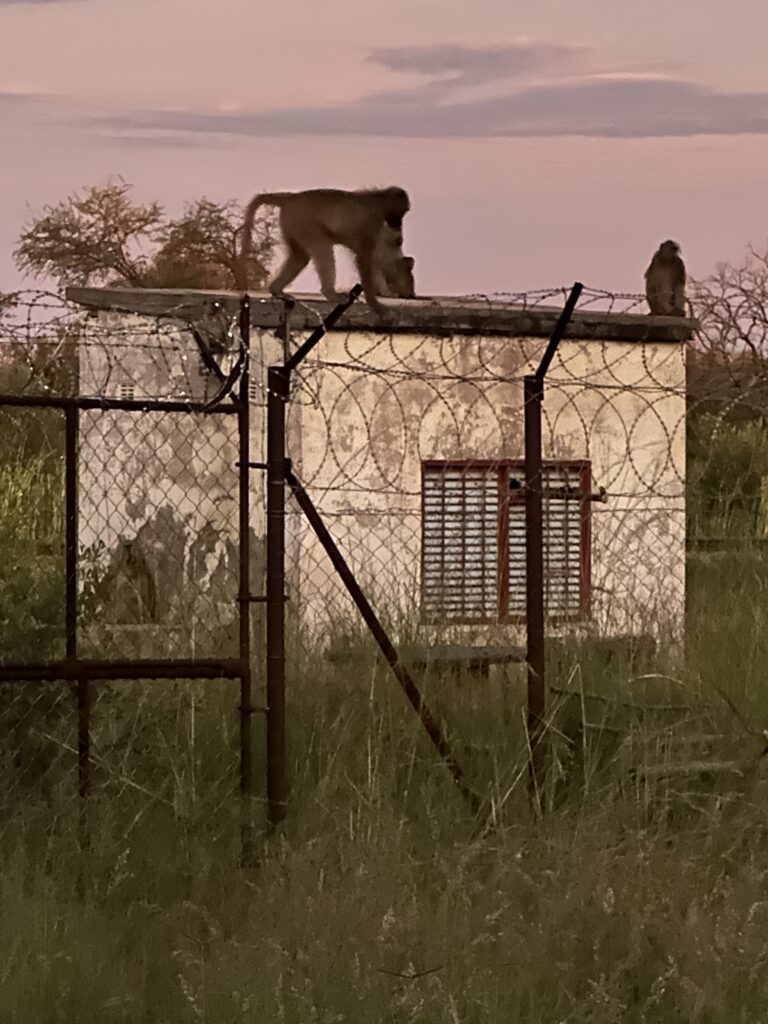
I learned that a group of baboons is called a “troop”, which seems appropriate.
I captured this troop storming an electrical compound late in the afternoon.
Taking pictures from a rolling train or a safari jeep is tricky business. It takes a second or two to arm the phone/camera. If the vehicle is moving quickly, the subject is often gone before the shutter clicks. I capture more animal-bum pictures than smiling faces.
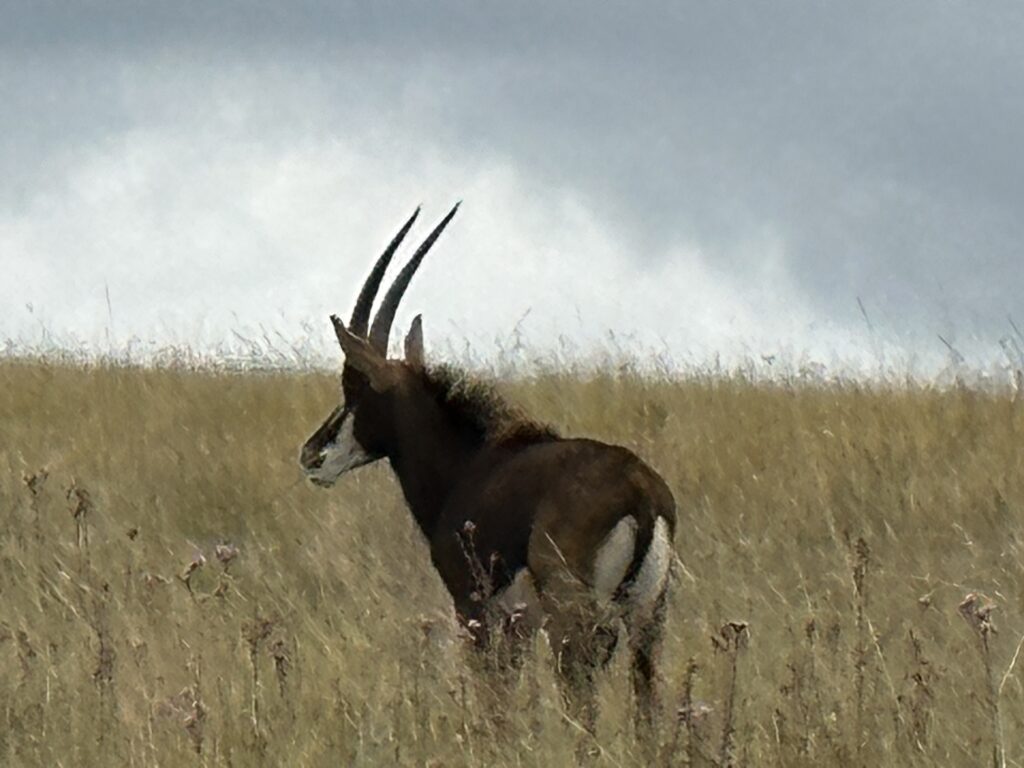
South Africa is criss-crossed with an electrical power grid, but for long periods each day the lines could be used to hang laundry.
Power outages, which Africans call “load shedding”, happen at intervals almost every day. Load shedding is so common Eskom, the power provider, has developed an App so you can follow along to determine when, and for how long, the electricity is likely to be out.

For most rural residents, it really doesn’t matter, they are entirely off the grid, every day.
The train stops regularly. Sometimes for traffic or cows, sometimes for wheel bearing checks, and sometimes seemingly, for no reason at all. If we are close to a village, kids will often drop by for a chat. They seldom approach unsolicited, but a simple wave is invitation enough to bring them to the window in anticipation of a treat. We were encouraged not to give handouts, but how do you resist faces like these?
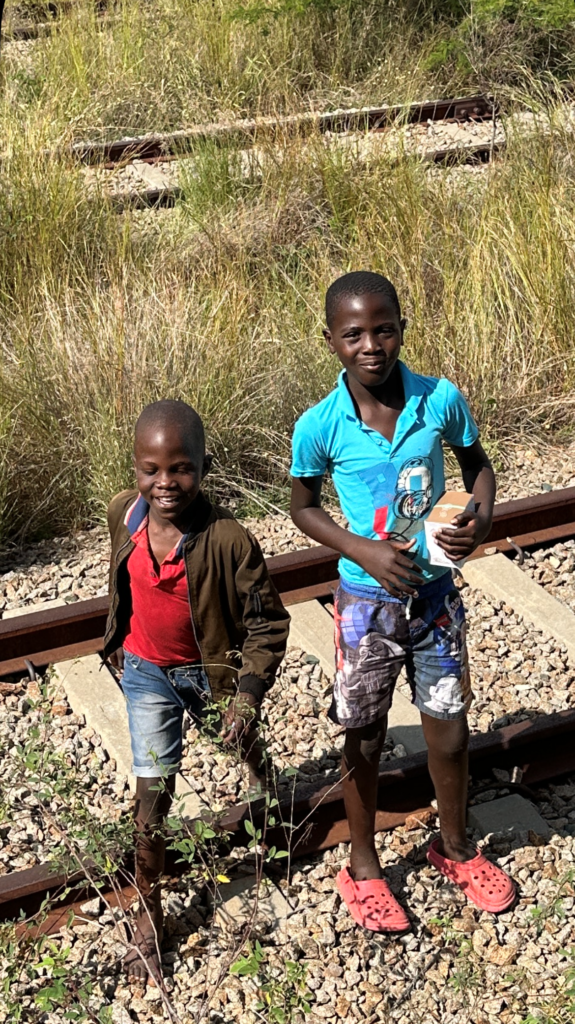
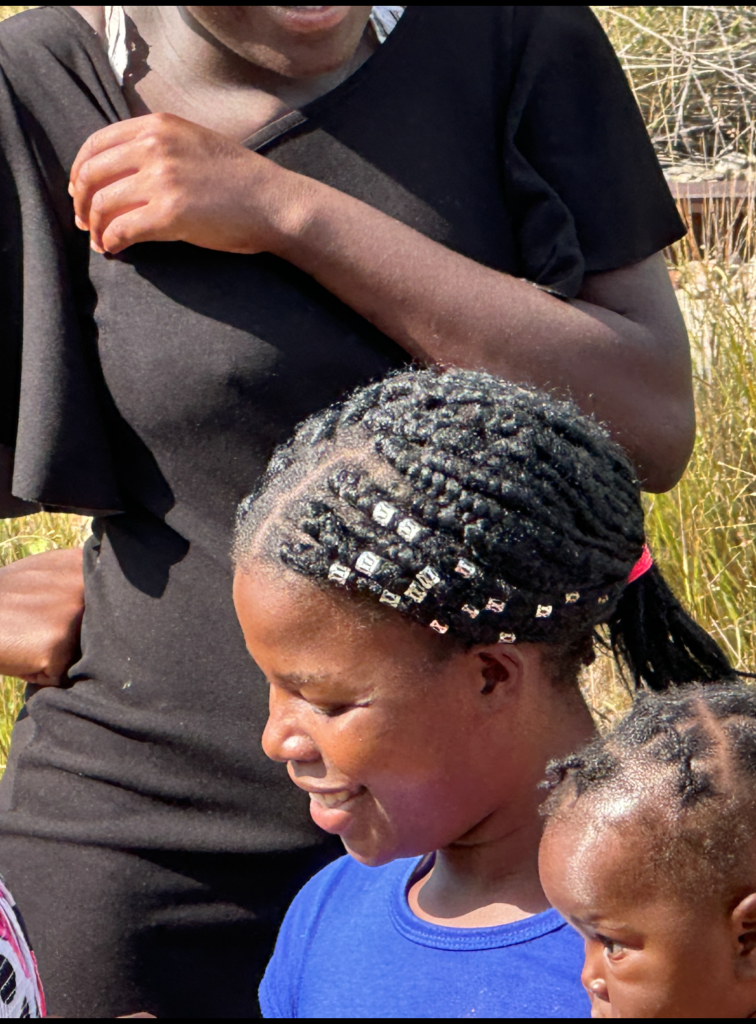
Three young boys arrived at our train car window. Introductions were made: Bear: What is your dog’s name? Indugu: Browned. Me: Can he run fast? Indugu: Yes, very fast. Me: Can you run fast? Indugu: Not so fast as Browned. Me: Why aren’t you in school? Indugu: No school on Saturday. Bear: Do you live here? (Pointing to the village) Indugu: Yes, where do you live? Me: Canada. We came from Canada to visit your beautiful country. Not on the train, we had to fly. Indugu: Can I go with you on the train? Me: Do you have a ticket? Indugu: No. Me: Sorry, you must have a ticket. They gave us snacks on the train, but I can’t eat them. Do you want them? Indugu: Yes! Me: Share with your friends, please. Indugu: Yes! Thank You! Me: There are some dried meat sticks in there for Browned. Indugu: Big smiles, Thank You! The train is rolling again…… too soon.
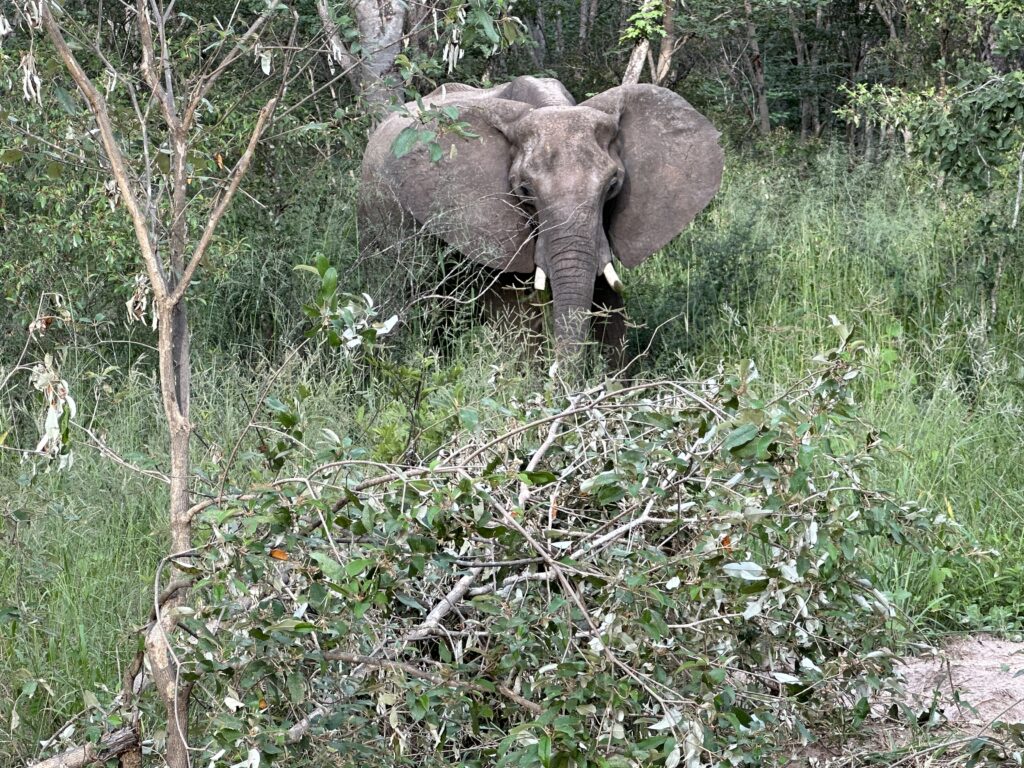
I was the first person on our tour to spot an elephant – a big bull. But frankly, they are kind of hard to miss!
Their eyesight is poor, so the elephants raised their trunks in the air to smell our presence. Satisfied that they were not in danger, they carried on foraging – about 150kg of foliage per day, half of which goes undigested. (More on this later, in the elephant poop section.)
It is a hot afternoon. The creature’s ears are billowing in and out, cooling their bodies and the vessels that carry blood through their enormous bodies.
A family group emerges from the bush, females, juveniles, and a baby. It is mystifying how something so big can be so cute at the same time.
Things you don’t hear every day: “You mustn’t open your windows while we are stopped, the monkeys will get in.” “We don’t have water at the moment, an elephant stepped on the main water line and crushed it. The maintenance guys are working on it now.” “Oh, and if an elephant comes by and drinks from your pool, let us know and we will clean it up. They make an awful mess.” “Don’t mind the warthogs, they sometimes go under the deck for shade, and to avoid predators. They are harmless. (But what about the “predators”? - I never thought to ask.) Discussing driving on the left: “We used to drive on the left, since the rain, we drive on what’s left”.
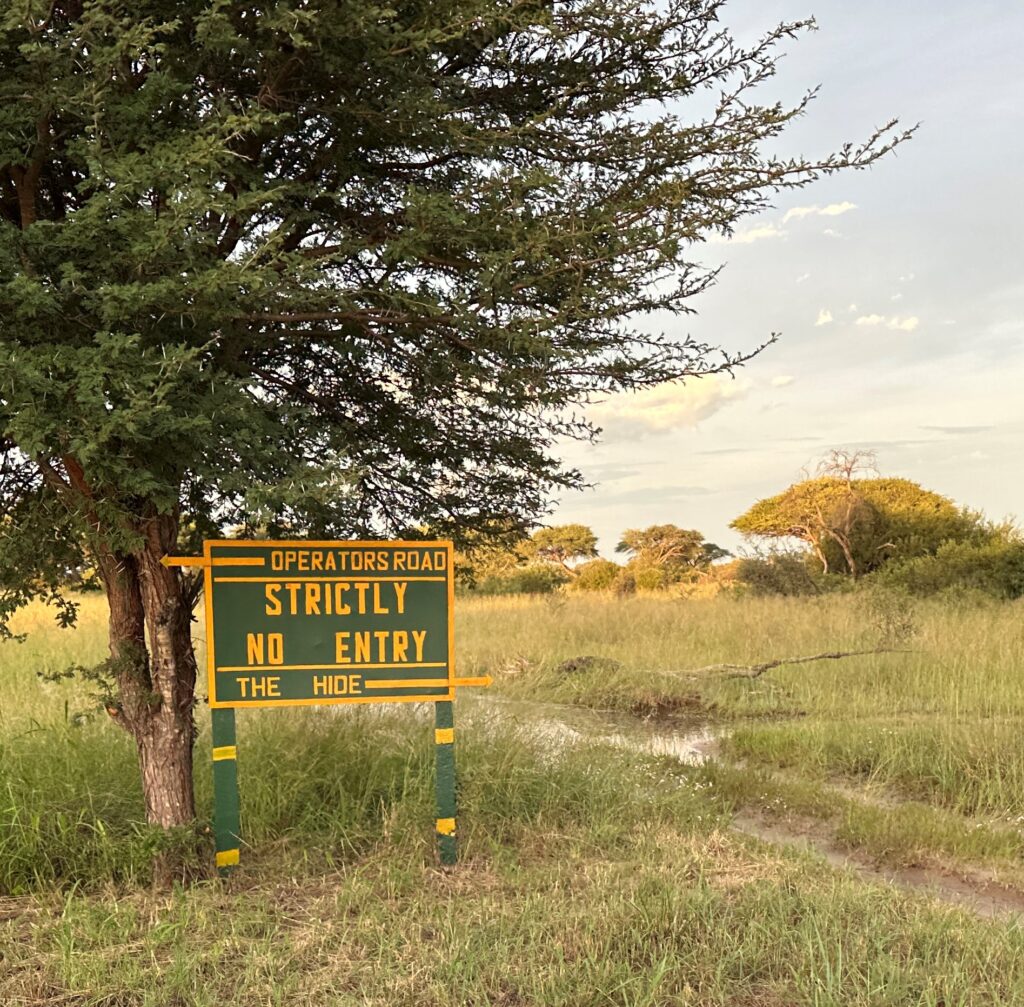
Any time you encounter a sign that says: “Strictly No Entry”, and you choose to go down that road, you are about to embark on an adventure.
The Dung Beetle depends on the elephant for survival. When an elephant defecates in the bush, its excrement is only about 50% digested. Digested and undigested fibers sit in a great lump of poo, drying in the sun. When the dung pile reaches just the right consistency, a female dung beetle burrows into it and lays her eggs. The sun continues to roast the pile creating a hard outer shell, with a moist nutrient-rich interior. This is the perfect environment for dung beetle eggs to incubate and hatch into larvae. Those larvae mature into a beautiful insect. They crawl out of the dung pile, the females go looking for a mate and the next elephant poo to lay eggs. And the cycle continues.
Hwange guide, explaining the relationship between elephants and Dung Beatles.
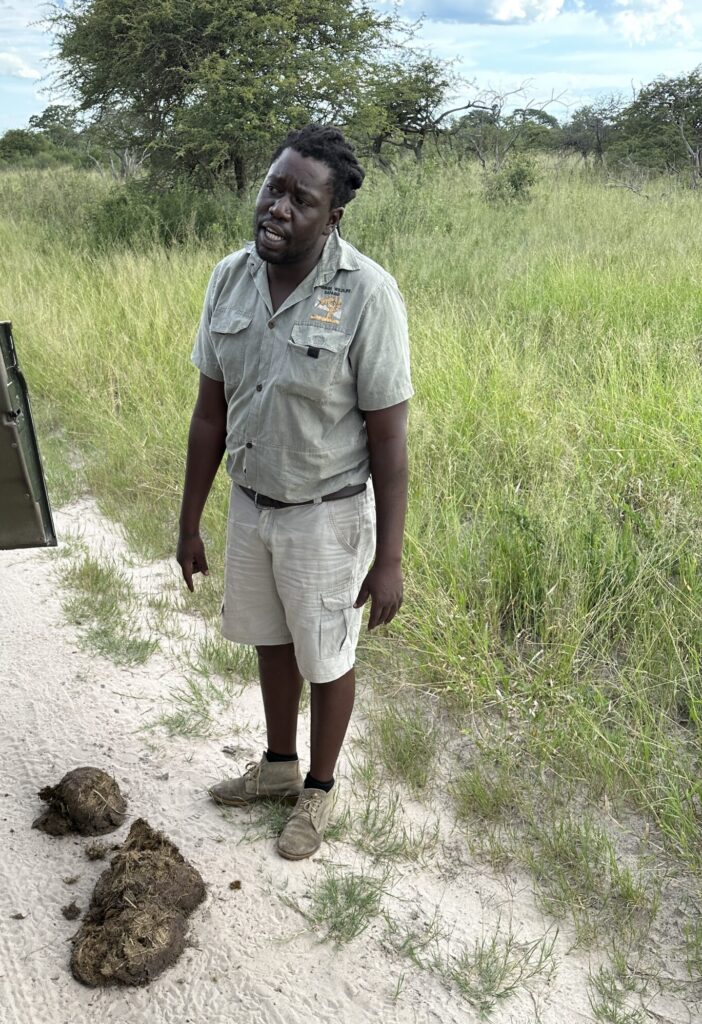
Zebra and baboons have another fascinating symbiotic relationship. Zebra herds follow the baboon troops as they forage in the grasslands. The baboons are especially sensitive to danger, if they detect a lion, they become agitated, alerting the zebra to the predator.
Then, everybody runs!
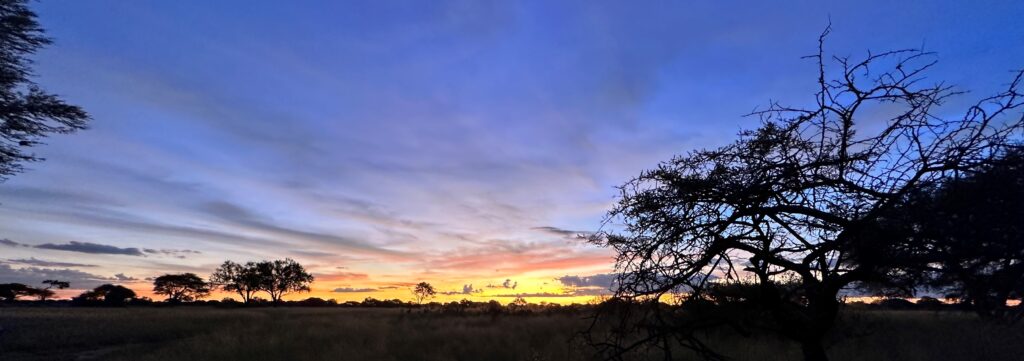
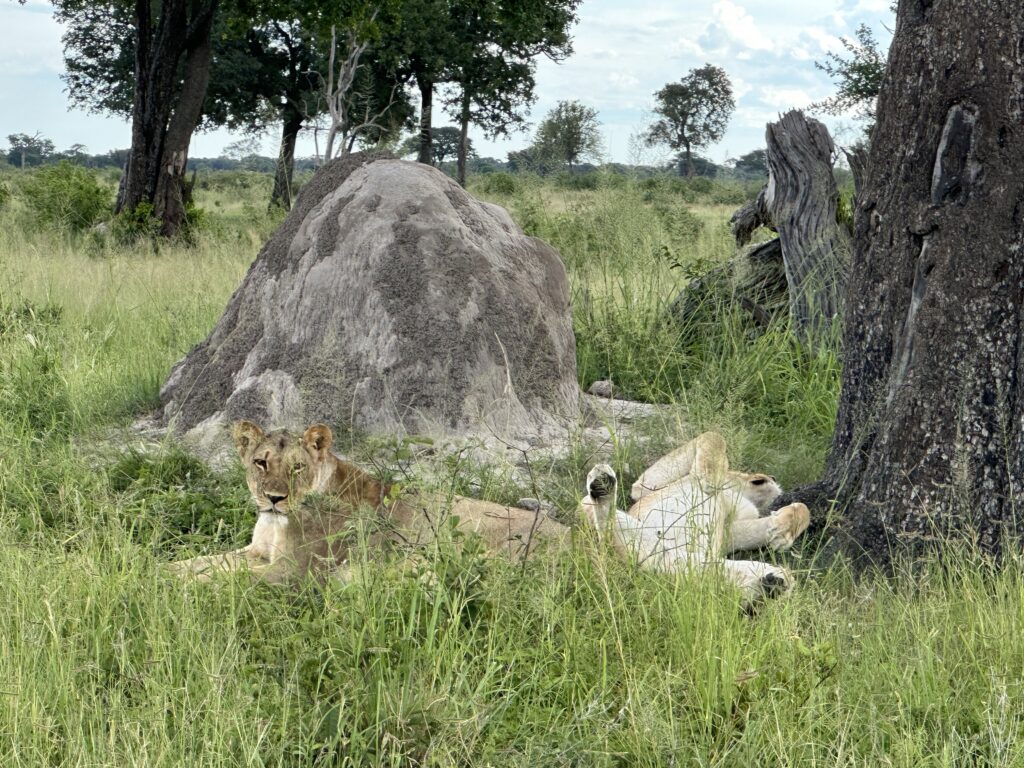
Of all the wildlife photos we took today, this one was the easiest. We captured two of the most feared predators in Africa, in the wild.
They might be King of the Beasts, but these two acted like …
… house cats.
We are going to see one of the seven natural wonders of the world tomorrow. Provided we don’t slip over Victoria Falls, I will check in later. Happy Trails!


Russ
Thank you. I imbedded a video in this post, were you able to download it? My first attempt at cell phone cinematography.
Gervais
That phone is working well for you as a camera, nice work.